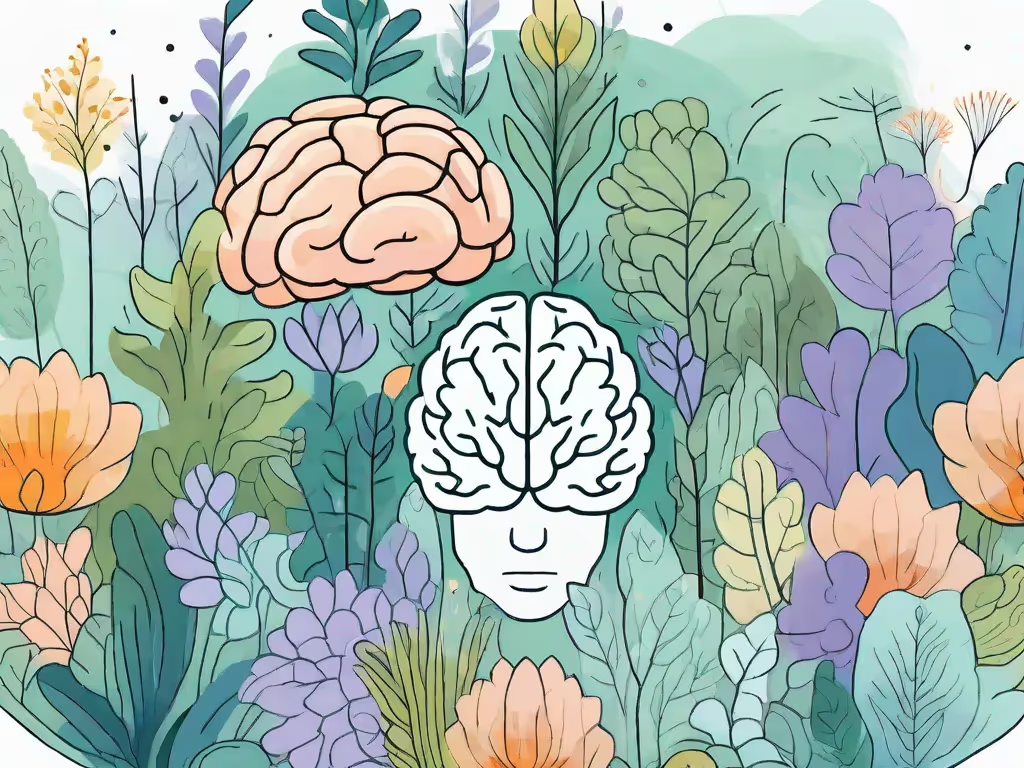Gabapentin is a medication that has gained attention for its potential use in treating anxiety. In this article, we will explore the benefits and risks of using Gabapentin for anxiety, as well as its role in managing different anxiety disorders. We will also discuss the effectiveness of Gabapentin in reducing anxiety symptoms, its potential as an alternative to traditional anxiety medications, and the various side effects and risks associated with its use. Additionally, we will provide guidance on Gabapentin dosage and administration for anxiety. So, let's delve into the world of Gabapentin and its potential in alleviating anxiety symptoms.
Understanding Gabapentin
What is Gabapentin?
Gabapentin is a prescription medication that was initially developed to treat epilepsy. However, it has also shown promise in managing other conditions, including chronic pain and anxiety disorders. Gabapentin belongs to a class of drugs known as anticonvulsants or antiepileptic drugs.
When it comes to epilepsy, Gabapentin works by stabilizing electrical activity in the brain, preventing seizures from occurring. It does this by inhibiting the release of certain neurotransmitters that are responsible for transmitting signals between nerve cells.
For chronic pain management, Gabapentin's exact mechanism of action is not fully understood. However, it is believed to reduce the release of certain neurotransmitters involved in pain signaling, such as substance P and glutamate. By modulating these neurotransmitters, Gabapentin may help alleviate chronic pain.
Additionally, Gabapentin has been found to be effective in treating anxiety disorders. It is thought to work by affecting certain chemicals in the brain that are involved in anxiety and seizures. Specifically, Gabapentin is believed to increase the levels of gamma-aminobutyric acid (GABA), a neurotransmitter that helps calm excessive brain activity. By enhancing GABA's effects, Gabapentin may help reduce anxiety symptoms.
How Does Gabapentin Work?
Gabapentin works by affecting certain chemicals in the brain that are involved in anxiety and seizures. It is thought to increase the levels of gamma-aminobutyric acid (GABA), a neurotransmitter that helps calm excessive brain activity. By enhancing GABA's effects, Gabapentin may help reduce anxiety symptoms.
Gamma-aminobutyric acid (GABA) is an inhibitory neurotransmitter that plays a crucial role in regulating brain activity. It helps to balance excitatory signals, preventing neurons from firing excessively. When GABA levels are low, it can lead to increased anxiety and seizures. Gabapentin works by increasing the availability of GABA in the brain, promoting its calming effects.
Furthermore, Gabapentin has been found to modulate the release of other neurotransmitters, such as glutamate. Glutamate is an excitatory neurotransmitter that is involved in transmitting signals between nerve cells. By reducing glutamate release, Gabapentin may help dampen excessive brain activity, further contributing to its antiepileptic and anxiolytic effects.
It is worth noting that the exact mechanisms of Gabapentin's action are still being studied and understood. Researchers continue to explore the drug's effects on various neurotransmitter systems and their implications for different medical conditions. This ongoing research aims to further enhance our understanding of Gabapentin's therapeutic potential.
The Role of Gabapentin in Treating Anxiety
Gabapentin and Generalized Anxiety Disorder
Generalized Anxiety Disorder (GAD) is a common mental health condition characterized by excessive and uncontrollable worry about various aspects of life. It can significantly impact an individual's daily functioning and overall well-being. While there are various treatment options available for GAD, studies suggest that Gabapentin may be effective in reducing anxiety symptoms in individuals with this disorder.
Gabapentin, originally developed as an antiepileptic drug, has been found to have anxiolytic properties. It works by modulating the release of certain neurotransmitters in the brain, such as gamma-aminobutyric acid (GABA), which plays a crucial role in regulating anxiety and stress. By enhancing GABA activity, Gabapentin can help calm the overactive neural circuits associated with anxiety, thereby providing relief to individuals with GAD.
When used in the treatment of GAD, Gabapentin can be prescribed as a standalone medication or in combination with other pharmacological interventions, such as selective serotonin reuptake inhibitors (SSRIs) or benzodiazepines. Combining medications can lead to better outcomes, as they target different aspects of anxiety and work synergistically to alleviate symptoms.
Gabapentin and Social Anxiety Disorder
Social Anxiety Disorder, also known as social phobia, is a debilitating condition characterized by intense fear and avoidance of social situations. Individuals with social anxiety often experience extreme distress when faced with situations that involve interacting with others or being the center of attention. Fortunately, research has shown that Gabapentin may help alleviate social anxiety symptoms and improve overall quality of life for those affected.
One of the main ways Gabapentin can benefit individuals with social anxiety is by reducing the fear of public speaking. Public speaking is a common trigger for social anxiety, and the thought of addressing a large audience can be overwhelming for many. Gabapentin's anxiolytic properties can help individuals feel more calm and at ease in these situations, allowing them to deliver presentations or speeches with greater confidence.
In addition to its effects on public speaking anxiety, Gabapentin can also help individuals with social anxiety navigate social interactions more comfortably. It can reduce the excessive worry and self-consciousness that often accompany social situations, enabling individuals to engage in conversations and form connections with others more easily.
Gabapentin and Panic Disorder
Panic Disorder is a type of anxiety disorder characterized by recurrent and unexpected panic attacks. These attacks are often accompanied by intense physical symptoms, such as heart palpitations, shortness of breath, and a sense of impending doom. Gabapentin has shown promise in the treatment of panic disorder, offering relief to those who experience these debilitating episodes.
One of the key ways Gabapentin can help individuals with panic disorder is by reducing the frequency and severity of panic attacks. By modulating the release of neurotransmitters in the brain, Gabapentin can help regulate the heightened anxiety and fear response associated with panic attacks. This can provide individuals with a sense of control and enable them to better manage their anxiety.
Furthermore, Gabapentin's calming effects on the brain can help individuals with panic disorder experience a greater sense of overall well-being. It can reduce the anticipatory anxiety and constant worry about future panic attacks, allowing individuals to engage in daily activities without the constant fear of an impending episode.
In conclusion, Gabapentin has shown promise in the treatment of various anxiety disorders, including Generalized Anxiety Disorder, Social Anxiety Disorder, and Panic Disorder. Its anxiolytic properties and ability to modulate neurotransmitter activity in the brain make it a valuable option for individuals struggling with anxiety symptoms. However, it is important to consult with a healthcare professional to determine the appropriate dosage and treatment plan tailored to each individual's needs.
The Benefits of Using Gabapentin for Anxiety
Effectiveness of Gabapentin in Reducing Anxiety Symptoms
Multiple studies have shown that Gabapentin can significantly reduce anxiety symptoms in individuals with various anxiety disorders. It has been found to be particularly effective in reducing the physiological symptoms of anxiety, such as racing heart, trembling, and sweating. This can provide immense relief to those experiencing anxiety on a daily basis.
Gabapentin as an Alternative to Traditional Anxiety Medications
In some cases, traditional anxiety medications, such as benzodiazepines, may not be suitable due to their potential for dependence and cognitive impairments. Gabapentin offers an alternative treatment option that is less likely to cause addiction and cognitive side effects. It is a non-controlled substance, making it a safer choice for long-term anxiety management.
The Risks and Side Effects of Gabapentin
Common Side Effects of Gabapentin
Like any medication, Gabapentin can cause side effects. The most commonly reported side effects include dizziness, drowsiness, and headache. These side effects are often temporary and diminish as the body adjusts to the medication. It is essential to discuss any side effects with a healthcare professional to determine the best course of action.
Serious Risks Associated with Gabapentin Use
While rare, there are certain serious risks associated with Gabapentin use. Some individuals may experience suicidal thoughts or behaviors when taking Gabapentin. It is crucial to seek immediate medical attention if any signs of suicidal ideation or worsening depression occur. Additionally, some individuals may develop an allergic reaction to Gabapentin, which may include rash, itching, swelling, or difficulty breathing. If any allergic reactions occur, it is important to seek immediate medical help.
Gabapentin Dosage and Administration for Anxiety
Determining the Right Dosage
The appropriate dosage of Gabapentin for anxiety depends on various factors, including the severity of symptoms and individual response to the medication. It is important to work closely with a healthcare professional to determine the right dosage for each individual. Dosage adjustments may be necessary to achieve optimal results while minimizing side effects.
How to Take Gabapentin for Anxiety
Gabapentin is typically taken orally, either with or without food. It is important to follow the prescribed dosing instructions and to take the medication at the same time each day. Abruptly stopping Gabapentin can lead to withdrawal symptoms, so it is crucial to consult with a healthcare professional before discontinuing the medication.
In conclusion, Gabapentin shows promise as an effective treatment option for individuals with anxiety disorders. It can help alleviate anxiety symptoms and provide relief from the challenges of living with anxiety. However, like any medication, Gabapentin is not without risks and side effects. It is essential to work closely with a healthcare professional to determine if Gabapentin is the right treatment option and to monitor its effectiveness and any potential side effects.
If you are interested in exploring alternative methods for managing anxiety, Aura Health App can provide valuable resources. Aura offers guided meditations, mindfulness exercises, and sleep stories designed to help reduce anxiety and promote relaxation. With Aura, you can unlock a sense of calm and discover new ways to manage anxiety in your daily life. Download the Aura Health App today and start your journey towards a more peaceful mind.
Aura is Your All In One App for Meditation, Mindfulness Wellbeing
Find peace every day with one app for your whole well-being. There is no one-size-fits-all solution to mental well-being. Aura is the first all-in-one wellness app that learns how to best help you. Discover an endless library of expert-created tracks for your well-being, all taught by the world’s best coaches, therapists, and storytellers. With Aura's personalized recommendations, you can find peace every morning, day and night.



.webp)






.avif)

%20(1).avif)


.avif)
.avif)
.webp)


.avif)


















































































































.avif)

















.svg)
.avif)








